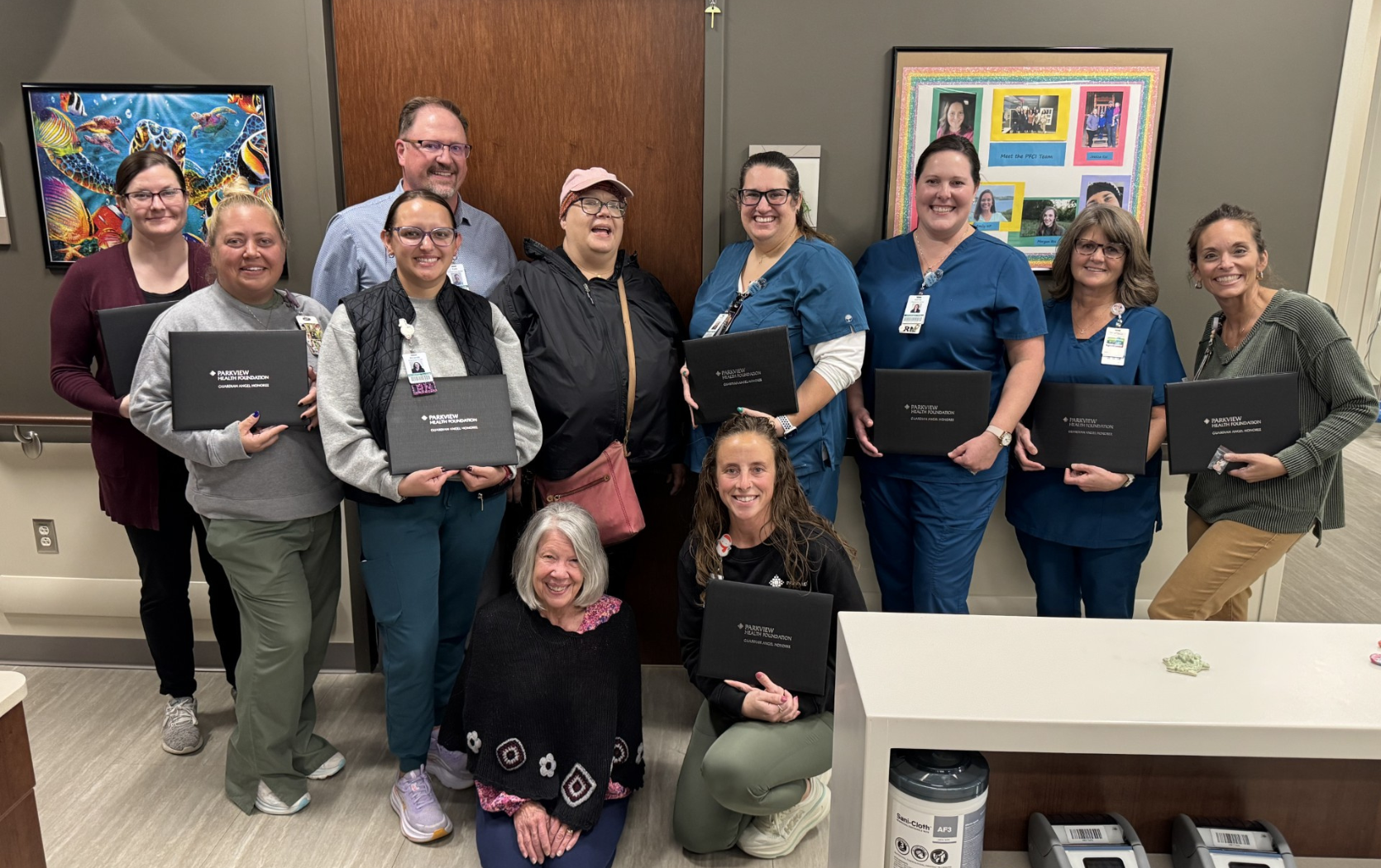
“I once took a phone call from a mother screaming at me after she had run over her two-year-old child,” explained Andrew Hoskins, EMS manager, Community Dispatch. “I took the call as I would any other call and did my best to help the caller and the patient.”
After this highly emotional event, the EMS and Fire teams had a critical incident stress management debriefing. As a dispatcher, Andrew had not thought of his emotional and mental state after that particular call until days later. Since Critical Incident Stress Management (CISM), a structured protocol for helping first responders process emotions after a critical call, provides more immediate care at the scene of the incident, those who work for dispatch and receive the calls often endure the stress and even some of the trauma, but are not thought of as having Post-Traumatic Stress Disorder (PTSD) or being affected by those situations.
With help from Parkview Foundation donors, a recent request was approved to send Parkview co-workers, Andrew Hoskins and Jill Newman, EMS and Flight Operations Specialist, to professional development classes at the St. Joseph County 911 Dispatch Center in Mishawaka, Indiana. The first day focused on the topics of Survive and Thrive 911 Resilience. The second was the first part of a certified peer supporter class.
Dispatchers often struggle with the same emotions as those on the scene. Many times they don’t even know the outcome of that patient.
“Imagine the screams on the other end of that phone and not being there to help, visualizing in your mind what that caller must be seeing. Often, our visions are worse than the reality of the situation. It is very common for dispatchers to experience PTSD from those ‘hot’ calls we take,” Andrew shared.
The Survive and Thrive 911 Resilience program addresses those challenges. It raises awareness of issues that a dispatcher may already be dealing with. It helps them cope with those issues so they can be effective dispatchers.
PTSD can mimic so many other disorders, such as depression. As a dispatcher continues working with these stress symptoms, added emotions from their job cause more stress. This can trigger many physical, mental and emotional issues. If emergency service dispatchers do not properly care for themselves, they cannot effectively help the mother, father, sister, brother, friend, coworker, etc. on the other end of that phone.
“Survive and Thrive 911 Resilience is a course that focuses on the individual. It is directed toward dispatchers of all three disciplines: police, fire and EMS. It focuses on the health and well-being of each dispatcher and teaches how to recognize the negative effects of stress we may be exhibiting. It gives us techniques to minimize stress and how to effectively manage our highly stressful environment.”
The certified peer supporter class teaches individuals or teams how to build a peer support program for their dispatch center. It provides the knowledge that enables participants to recognize when a coworker may be struggling with a mental or emotional concern, and explains how to help their coworkers by encouraging them to seek professional help through programs like the Employee Assistance Program (EAP)—a program that is funded in part through the generous gifts of Parkview Foundation donors.



